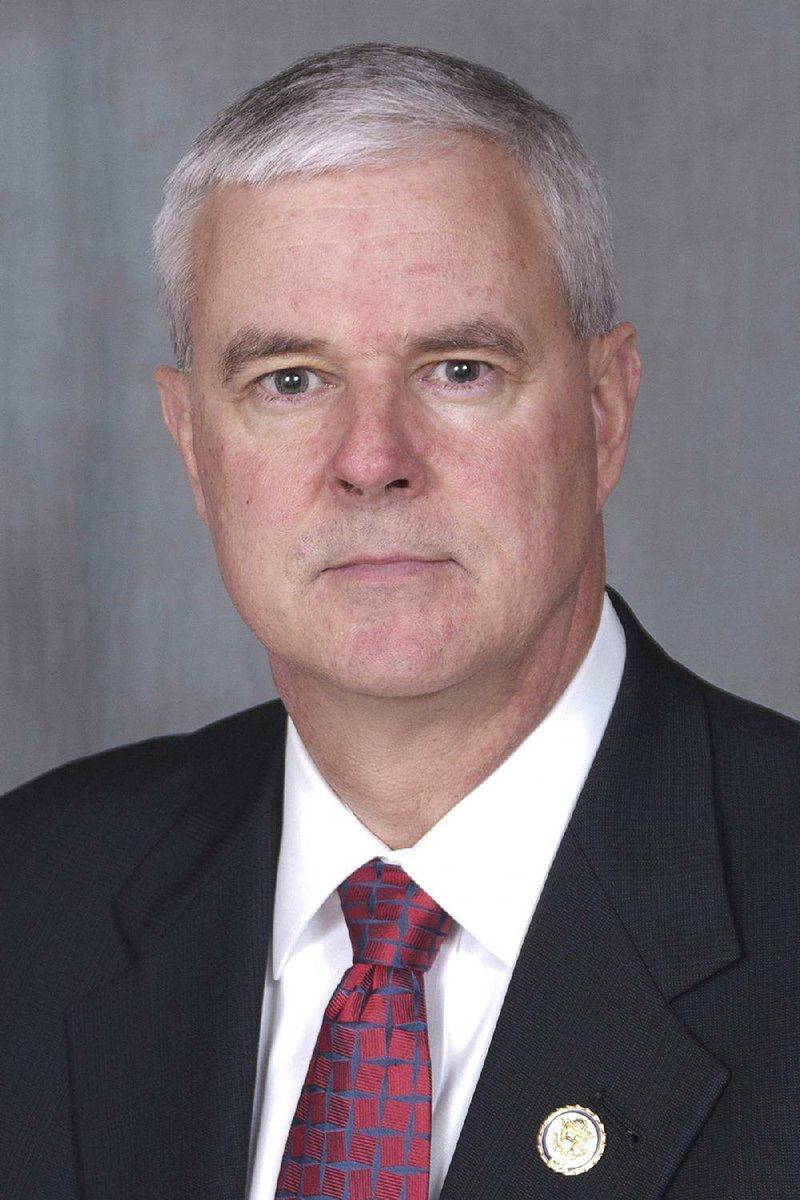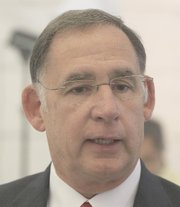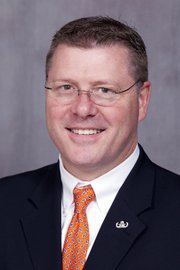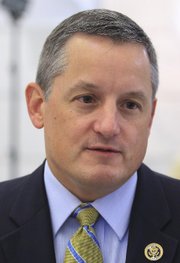WASHINGTON -- With only two or three weeks left on the 2015 congressional calendar, members of the Arkansas delegation say that passing a spending bill to keep the government running is a top priority.
Several lawmakers say they also have other pieces of legislation that they hope to see enacted in the final days of the year.
Third District U.S. Rep. Steve Womack, a Rogers Republican who serves on the House Appropriations Committee, said the budgetary issues are key.
A House-Senate conference is working out differences in dueling federal highway funding bills, and negotiations continued over much of the Thanksgiving weekend. Without an agreement, funding is set to run out on Friday.
Lawmakers also need to pass a package of other spending bills that collectively are known as the "omnibus spending bill" by the end of next week.
Without an agreement on the roughly $1.1 trillion spending measure or a short-term funding extension, the government would run out of money, potentially triggering another government shutdown.
"Obviously as an appropriator, job one right now is to get the omnibus package through the House and ... the Senate and on the desk of the president," Womack said. "Early in the month of December, we've got to have a funding mechanism or else we're going to be rolling the dice on the operation of government."
U.S. Sen. John Boozman, another Republican from Rogers, said the funding bills are his top priority as well.
"The most important thing we need to do is get the spending authorized so that these agencies of the federal government will know how much money they're going to [be able to] use," he said. "We are well into the fiscal year and we haven't decided that." Fiscal year 2016 started Oct. 1.
Boozman said he will be "making sure that we get an adequate amount for defense to protect us and also take care of the men and women that are serving us and keeping us safe."
U.S. Sen. Tom Cotton also emphasized the importance of the omnibus legislation.
"The biggest single bill before us is the spending bill, and I hope that we can pass a spending bill that keeps the government funded but also reflects the priorities of Arkansans and a conservative majority. It's going to be a big fight, and it's where a lot of my energies are focused," he said.
While the omnibus package is the biggest, Arkansas lawmakers also are focused on the highway funding bill. The House and Senate passed separate versions, each authorizing more than $300 billion in spending on highways and transit over the next six years.
The House version includes language that would allow agricultural vehicles to continue using a stretch of U.S. 63 in northeast Arkansas if the road is added to the interstate highway system.
The exemption is critical, according to 1st District U.S. Rep. Rick Crawford, a Jonesboro Republican. Without it, some agriculture workers would have to take a 90-mile detour to cross the St. Francis floodway once U.S. 63 became Interstate 555.
After successfully adding an amendment to the Surface Transportation Reauthorization and Reform Act last month, Crawford was named to the conference committee that will help merge the House and Senate versions, creating the final legislation.
"It looks like we've just about gotten it across the finish line," Crawford said in an interview during the Thanksgiving recess.
He hopes the House and Senate can pass the highway funding bill this week and forward it to President Barack Obama's desk by Friday.
Once approved, the switch from U.S. 63 to Interstate 555 won't be difficult. It's mainly a matter of changing the signs and updating the maps.
"The road doesn't change, but the designation as an interstate highway will make a huge difference," Crawford said.
Businesses are more likely to relocate to an area that has easy interstate access, he said, adding, "I think it's a huge boost for economic development in the region. Certainly it means a lot to Jonesboro, but it really means a lot for all the communities from West Memphis to Paragould."
Second District U.S. Rep. French Hill said his "macro" goals are passage of the highway funding bill and the other appropriations measures. But the "micro" item on his to-do list involves his legislation to delay implementation until early next year of new Consumer Financial Protection Bureau rules governing home sales and refinancing.
The new rules, which took effect in October, require that homebuyers receive easier-to-understand disclosure forms that clearly lay out the terms of a mortgage.
Businesses that fail to comply with the new rules can be fined. Hill, a Little Rock Republican and former banker, said his legislation "would give a grace period, a period of reprieve between October and February, for people struggling to comply with this new 1,000-page regulation that governs how you do a home closing."
Concern about violating the new regulations can lead to delays, he noted. Hill said his legislation would "help the 600,000 people who either refinance or buy a new home every month in America have a little bit speedier, less crisis-oriented closing between now and February."
The House passed Hill's legislation, known as the Homebuyers Assistance Act, by a vote of 303-121 in October. The Senate hasn't acted on the bill.
Fourth District U.S. Rep. Bruce Westerman, a Hot Springs Republican, also highlighted the omnibus spending package. In addition, he hopes to obtain passage of his legislation, the Resilient Federal Forests Act of 2015.
The bill, which passed the House 262-167 in July, would streamline environmental analyses, discourage litigation and limit the use of preliminary injunctions, steps to make it easier for the U.S. Forest Service to execute management plans that include removing trees or brush or selectively burning some areas to generate new growth.
In some instances, officials would be able to remove insect-infested, diseased or dead trees in national forests without performing the full environmental study currently mandated by the National Environmental Policy Act.
Since then, the measure has been stuck in a Senate committee, but Westerman, the only member of Congress with a graduate degree in forestry, said that may change.
"I've got wind that the Senate might actually take up [the legislation] and have a hearing on it," he said.
The legislation is "important to the country [and] it's very important to the 4th District of Arkansas because we've got 2.5 million, approximately, acres of federal land there," he said.
Metro on 12/01/2015





